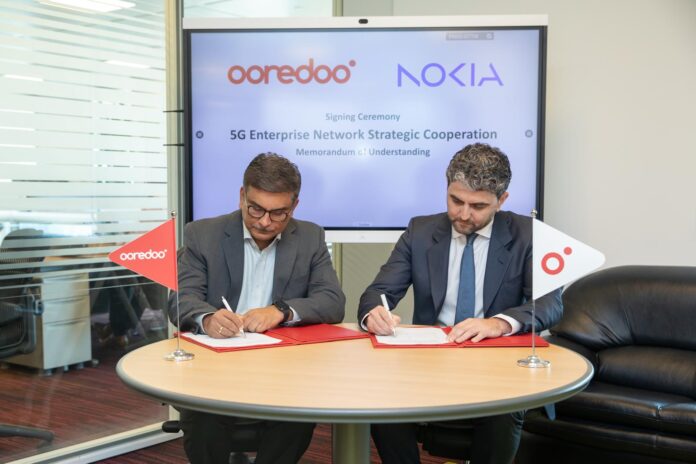Ooedoo and Nokia will work to develop and deploy 5G private networks for businesses operating across several industries
Middle East telco Ooredoo Group has signed a Memorandum of Understanding (MoU) with Finnish vendor Nokia with the aim of upgrading business connectivity with 5G solutions.
Under the terms of the new agreement, both companies will collaborate closely to develop and deploy 5G private networks for businesses operating across several industries.
Ooredoo noted that these deployments will enable its business customers to benefit from low-latency 5G connectivity and enhanced IoT capabilities.
Najib Khan, group chief business services officer at Ooredoo, said: “Our strategic collaboration with Nokia underscores Ooredoo’s commitment to always providing best-in-class 5G solutions that empower our enterprise customers to grow their businesses and build resilience in a competitive environment. This partnership marks the beginning of a collaborative effort to build capabilities and develop a pipeline for future opportunities in the 5G enterprise domain.”
“Nokia’s collaboration with Ooredoo is another significant milestone for the evolution of 5G in the Middle East, North Africa, and Southeast Asia. The partnership will empower Ooredoo’s customers with cutting-edge 5G solutions that are optimized for enterprises. This will help organizations within these emerging markets to supercharge their digital transformation journey and continue to grow and innovate,” said Stephan Litjens, vice president of enterprise campus edge solutions at Nokia.
Earlier this year, Ooredoo Group said it is working with Chinese vendor Huawei to move toward the 5G-Advanced era by upgrading its core networks across key markets.
The partnership, which was signed during Mobile World Congress Barcelona 2024, will see the modernization of Ooredoo’s core networks in Qatar, Kuwait, Oman, Iraq, Tunisia, Algeria and the Maldives.
Under the terms of the agreement, Ooredoo and Huawei will collaborate to upgrade all core networks to a 5G core with a service-based architecture.
The Middle East telco noted that core network plays a crucial role in connecting various industry networks, communications networks and the Internet, and facilitates the rollout of new services and their commercialization.

